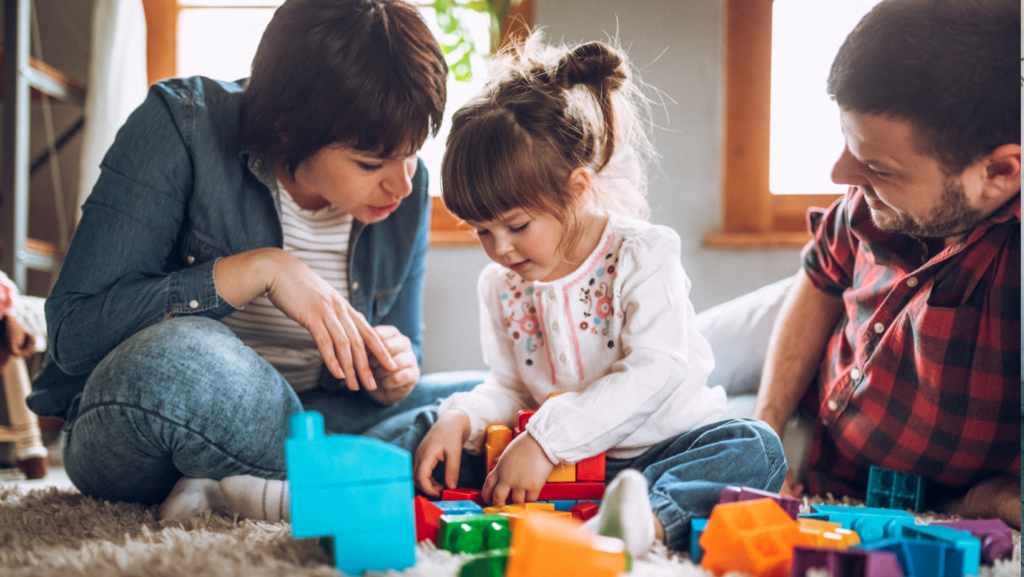”
Key Takeaways
- Importance of Security and Love: Establishing a nurturing environment emphasizing security and love is essential for children’s emotional and social development.
- Understanding Security in Parenting: Security involves creating a stable, supportive atmosphere through consistent routines, open communication, and effective responses to children’s needs.
- Role of Love: Love is expressed through affection, attention, and positive reinforcement, which encourages emotional growth and builds strong parent-child relationships.
- Creating a Safe Environment: Physical and emotional safety can be enhanced through childproofing, supervision, emergency preparedness, and open communication.
- Effective Communication: Active listening and using age-appropriate language help foster trust and encourage children to share their feelings and thoughts.
- Balancing Discipline and Affection: Implementing positive discipline techniques alongside consistent expressions of affection promotes understanding of boundaries while ensuring children feel loved and supported.
Parenting is a journey filled with joy, challenges, and countless decisions. In a world that often feels unpredictable, creating a nurturing environment where children feel secure and loved is more important than ever. Everyday parenting goes beyond just meeting physical needs; it involves fostering emotional connections that lay the groundwork for a child’s development.
By prioritizing security and love in daily interactions, parents can empower their children to thrive. This approach not only builds trust but also cultivates resilience, helping kids navigate the ups and downs of life. Embracing these principles can transform the parenting experience, making it more rewarding for both parents and children alike.
Everyday Parenting With Security and Love
 Everyday parenting involves establishing a nurturing environment that emphasizes both security and love. This combination forms the foundation for a child’s healthy emotional and social development.
Everyday parenting involves establishing a nurturing environment that emphasizes both security and love. This combination forms the foundation for a child’s healthy emotional and social development.
Security in parenting encompasses providing a stable, supportive atmosphere where children feel safe both physically and emotionally. Parents meet their children’s needs by ensuring consistent routines, open communication, and reliable support systems. Secure attachments form when parents respond effectively to their child’s needs, fostering trust. This trust empowers children to explore their world confidently, knowing they have a secure base to return to.
The Role of Love in Parenting
Love in parenting manifests through affection, attention, and positive reinforcement. Expressing love encourages emotional growth and self-esteem in children. Parents build strong, resilient relationships by showing empathy and understanding during challenging moments. Loving interactions, such as verbal affirmations or quality time, help children develop healthy emotional connections, enabling them to navigate relationships later in life.
Creating a secure environment involves both physical safety and emotional support. Parents play a vital role in establishing a space that nurtures their children’s well-being and development.
Physical Security Measures
Physical security measures ensure children’s safety at home and in various environments. Parents should consider the following actions:
- Childproofing: Parents should install safety gates, cabinet locks, and outlet covers to prevent accidents.
- Supervision: Parents need to supervise their children during playtime and outings, especially in unfamiliar areas.
- Emergency Preparedness: Parents must develop emergency plans and teach children about safety procedures, including fire drills and first aid basics.
- Safe Spaces: Parents ought to create designated areas for play that are free from hazards and equipped with age-appropriate toys.
- Consistent Routines: Parents should establish predictable daily routines that give children a sense of stability.
- Open Communication: Parents must encourage open dialogue, allowing children to express their feelings and concerns without judgment.
- Positive Reinforcement: Parents ought to regularly praise their children’s efforts, which boosts self-esteem and fosters resilience.
- Affectionate Support: Parents should provide hugs, kind words, and quality time, reinforcing emotional bonds and making children feel valued.
Nurturing Love in Daily Interactions
Nurturing love in daily interactions lays the foundation for healthy development. Strong, loving relationships empower children to face challenges with confidence and resilience.
Building Strong Relationships
Building strong relationships involves consistent emotional availability and engagement. Parents should spend quality time with their children, participating in activities that foster connection. Simple practices, such as listening attentively, playing together, or sharing stories, deepen emotional bonds. Physical touch, like hugs and holding hands, also reinforces feelings of safety and love. Additionally, expressing appreciation and acknowledging achievements promotes a sense of worth in children, further solidifying connections.
Communicating Effectively
 Communicating effectively enhances understanding and trust between parents and children. Parents should practice active listening, ensuring that children feel heard and valued. Open-ended questions encourage children to express their thoughts and emotions freely. Using age-appropriate language helps clarify ideas and fosters healthy discussions. Nonverbal cues, like smiles or nods, convey warmth and support, enriching communication. Consistent, honest communication cultivates an environment where children feel confident sharing their feelings, enhancing emotional security.
Communicating effectively enhances understanding and trust between parents and children. Parents should practice active listening, ensuring that children feel heard and valued. Open-ended questions encourage children to express their thoughts and emotions freely. Using age-appropriate language helps clarify ideas and fosters healthy discussions. Nonverbal cues, like smiles or nods, convey warmth and support, enriching communication. Consistent, honest communication cultivates an environment where children feel confident sharing their feelings, enhancing emotional security.
Balancing Discipline and Affection
Balancing discipline and affection plays a crucial role in effective parenting. This combination ensures that children understand boundaries while feeling loved and supported.
Positive Discipline Techniques
Positive discipline techniques focus on teaching rather than punishing. Approaches include:
- Setting Clear Expectations: Communicate specific behavior guidelines so children understand what’s acceptable.
- Using Natural Consequences: Allow children to experience the outcomes of their actions, promoting accountability.
- Implementing Time-Outs: Use time-outs as a calming period, helping children reflect on their behavior away from distractions.
- Encouraging Problem-Solving: Involve children in discussions about their actions, guiding them to find solutions and learn from mistakes.
- Reinforcing Good Behavior: Praise and reward appropriate behaviors to encourage repetition and build self-esteem.
These techniques foster an environment of respect and understanding, establishing a foundation for children’s emotional development.
Expressing Affection Consistently
Consistent expressions of affection enhance children’s emotional security. Parents should prioritize:
- Regular Physical Touch: Hugs, kisses, and gentle touches establish comfort and connection.
- Verbal Affirmations: Use positive words to affirm love and support, reinforcing children’s self-worth.
- Quality Time: Dedicate uninterrupted time for meaningful interactions, fostering trust and closeness.
- Active Listening: Show genuine interest in children’s thoughts and feelings through attentive listening and engagement.
- Small Acts of Kindness: Simple gestures, like leaving loving notes or preparing favorite meals, communicate affection and care.
Consistent affection not only strengthens bonds but also equips children to face life’s challenges with confidence.
Everyday parenting rooted in security and love creates a solid foundation for children’s growth. By nurturing emotional connections and maintaining a stable environment, parents empower their kids to explore and thrive. This approach fosters resilience and builds trust, essential components for healthy development.
Incorporating practical strategies like consistent routines and positive reinforcement enhances the parent-child relationship. By balancing discipline with affection, parents can guide their children effectively while promoting emotional well-being. Regular expressions of love and open communication further reinforce feelings of safety, allowing children to face life’s challenges with confidence.
Ultimately, parenting with security and love not only enriches children’s lives but also transforms the parenting journey into a fulfilling experience.



